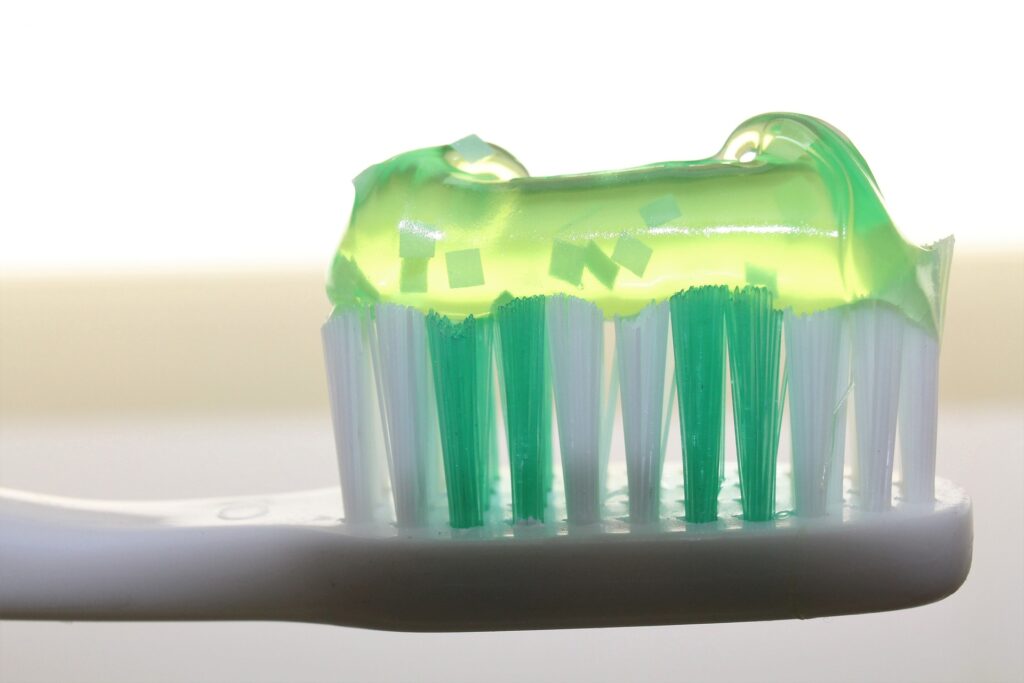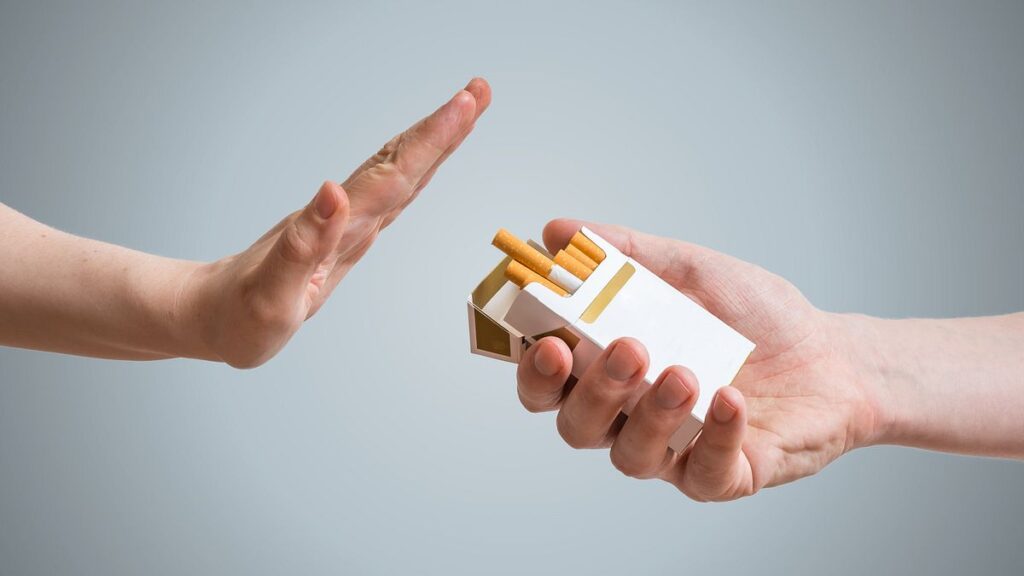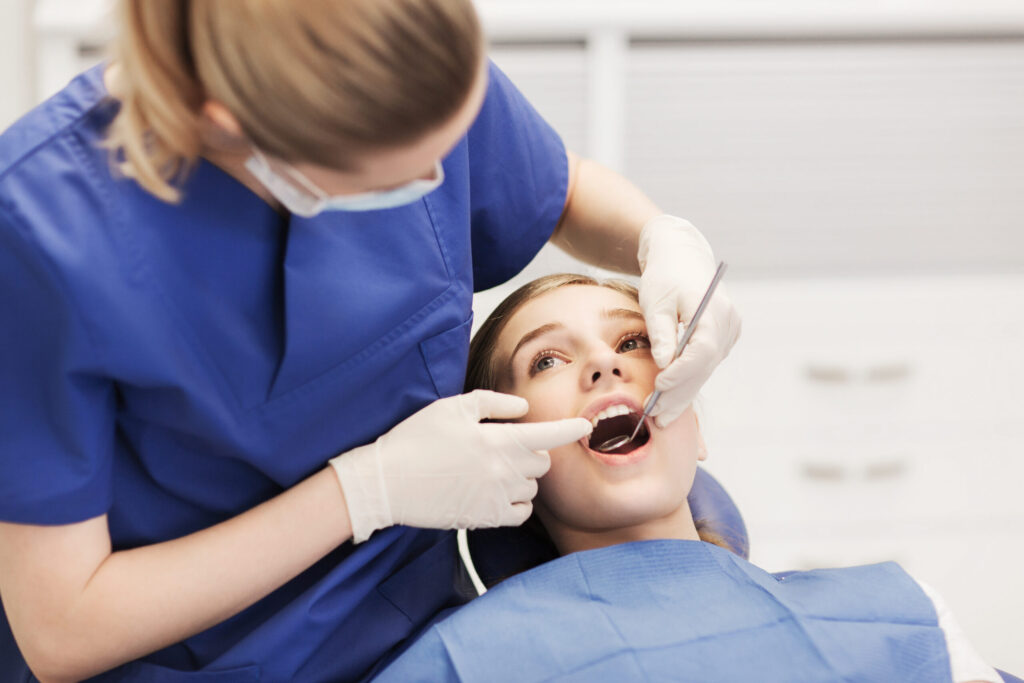
“What Helps Receding Gums Naturally?” At-Home Solutions for Receding Gums
Do your gums seem to be getting thinner and pulling away from your teeth? If so, you may be dealing with a condition called receding gums. While this issue can be alarming, the good news is that some at-home solutions can help.
So, what can you do about it? “What helps receding gums naturally?” Below are at-home solutions for receding gums that will help keep your smile healthy and strong:
Improve your oral hygiene habits
If you’ve been plagued with receding gums, it may be time to change your oral hygiene habits. Flossing is important to eliminate plaque and bacteria between your teeth. You’ll want to use a piece of floss that is 18 inches long. Begin by wrapping it around the middle finger of one hand and dragging it gently between your teeth, moving the floss in a C-shape once it reaches the gum line. Once you’ve finished, unwind your floss and place it back in your other hand.
Another factor in receding gums is not brushing hard enough. The lack of daily brushing can cause plaque and tartar to build up on your teeth. This makes it easy for bacteria to grow, leading to tooth loss. To prevent this, brush your teeth twice daily, and floss daily and regularly.
Use a soft-bristled toothbrush
Using a soft-bristled toothbrush to brush your teeth can effectively treat receding gums. This will help prevent further gum recession and help to keep your teeth longer. In addition, a soft-bristled toothbrush will help to remove plaque and protect your gums from harmful bacteria.
Hard bristles can damage the gums and weaken the tooth enamel. They can also break the attachment between the gum and teeth, further contributing to gum recession. People with receding gums should use a soft-bristled toothbrush because they are more gentle on the gum tissue.

If you want to use a soft-bristled toothbrush to treat receding gums, you should be aware that not all of them are created equally. Some of them are better than others. The best way to find the best brush for your specific needs is to search online or at the manufacturer’s website. You can also get advice from salespeople.
Be gentle when brushing, and Use dental floss daily
Receding gums are a sign of gum disease and should be addressed by a dentist. If they are not treated, they may lead to tooth decay and even tooth loss. Additionally, they can lead to bad breath and bleeding gums. Prevention is key, and there are several simple steps that you can take today to keep your gums healthy.
Knowing how to brush your teeth to keep your gums healthy properly is important. Brushing your teeth too hard can damage them, so brush at a 45-degree angle and be gentle. Make sure to brush the gum line and the chewing surface as well. You should brush the inside of your cheek and tongue daily, too.
Make sure you use gentle motions when brushing and flossing. Hold the dental floss between your thumb and index fingers and gently move it up and down the gum line. Using the same motion, make sure you are gently scraping away plaque. Do not swish the floss vigorously, as this can irritate the gums.
Quit smoking
If you’re one of the many people who suffer from receding gums, you know how uncomfortable the condition can be. Besides the visible signs of receding gums, people with this condition also tend to have sore and swollen gums. However, there are ways to stop the condition and restore gum health.
The first thing you can do is quit smoking. Smoking can cause receding gums because nicotine and tobacco affect the gums’ blood vessels. The less blood they get, the fewer nutrients they get, and the more difficult it is for the gums to repair themselves. In addition, a smoker’s immune system is compromised, which makes them more susceptible to gum disease. You’ll make a great decision for your oral health by quitting smoking.

Another important tip to stop smoking is to avoid acidic foods like coffee and soda. These foods can damage the enamel of your teeth and cause staining. They’re also acidic, which can lead to cavities and tooth loss.
Limit your consumption of acidic beverages
Limiting your intake of acidic drinks is important to prevent tooth erosion and receding gums. Drinks with high acid levels, such as black coffee or milk, can wear down tooth enamel. You can reduce the number of acidic drinks you drink by rinsing your mouth thoroughly after drinking them. If you must drink acidic beverages, use a straw to keep the acid from contacting your teeth.
Also, limit your consumption of soda and other acidic drinks. These drinks can damage the enamel of your teeth, causing permanent discoloration. Rinsing your mouth with water after drinking them can help remove the acid damaging your teeth. It’s also important to avoid brushing your teeth right after acidic beverages.
While citrus fruit juices are good for your body, they are extremely acidic and can damage your teeth. It’s also important to avoid wine, as wine has high levels of acid that can destroy the teeth.
Chew sugarless gum to help increase saliva flow
Chewing sugarless gum can benefit your oral health, from protecting teeth from decay to fighting off bad breath. It increases saliva flow, washes food debris, and contains calcium and phosphate, two nutrients that strengthen tooth enamel. In addition, it can help control your appetite so that you can eat fewer snacks.
Chewing gum has been around for centuries and can help to increase saliva flow. It may also decrease your risk of developing caries. This is because chewing gum increases salivary flow and volume and stimulates the taste receptors in your mouth. These studies are still preliminary but show that chewing gum can improve oral health.
Although chewing gum can positively affect oral health, it’s important to find one that is sugarless. Look for ADA-certified sugarless gum, which contains no conventional sugars and uses sugar-free sweeteners such as xylitol.
Use a mouth rinse to help reduce plaque
Using a mouth rinse can improve oral health and is a great way to control bad breath. It can also help to prevent gum disease and tooth decay. Mouth rinses can be found over the counter or prescribed by your dentist. Their effectiveness depends on the type of rinse used and what you are trying to achieve.
See your dentist regularly for professional cleaning
Whether you’re a smoker or suffer from a receding gums condition, getting professional dental care is important as soon as possible. The early stages of receding gums can be treated without surgery, but more severe cases may require gum graft surgery or other professional care. If left untreated, receding gums can cause tooth infections and result in abscesses.

Receding gums are painful and may lead to tooth loss. If you don’t treat the problem early enough, the gums will eventually recede and will never grow back. In severe cases, you may need gum grafting surgery. During the procedure, the dentist will take soft tissue from other parts of your mouth and transplant it to the gums around your teeth. Although gum grafting is not a permanent solution, it can stop the progression of receding gums and restore your teeth. This procedure is safe and usually painless once the patient has been numbed.
Frequently asked questions
What are the best foods to eat for receding gums?
A diet rich in vitamins and minerals is essential for gum health. Foods such as leafy greens, fruits, and yogurt contain nutrients that help keep gums healthy and promote tissue regeneration.
How can I treat my receding gums at home?
Several home remedies can help treat receding gums. Brushing and flossing regularly help remove plaque and bacteria from the teeth and gums. Gargling with salt water several times daily can also help reduce inflammation and pain. Additionally, a topical homemade remedy made with Manuka honey, coconut oil, and tea tree oil can help soothe the gums and promote healing.
What is the best way to prevent receding gums?
Practicing good oral hygiene habits is the best way to prevent receding gums. This includes brushing twice a day, flossing daily, and using a mouthwash that contains fluoride. Additionally, quitting smoking and avoiding chewing tobacco can also help reduce the risk of gum disease.
Receding gums are no fun—but there are things you can do at home to help slow down the progression and keep your smile healthy! Be sure to brush and floss regularly; massage your gums every day, and invest in an electric toothbrush (or sonic toothbrush) to help remove plaque more effectively. Do all of these things, and you’ll be on your way to keeping those pearly whites shining bright teeth and gums!
